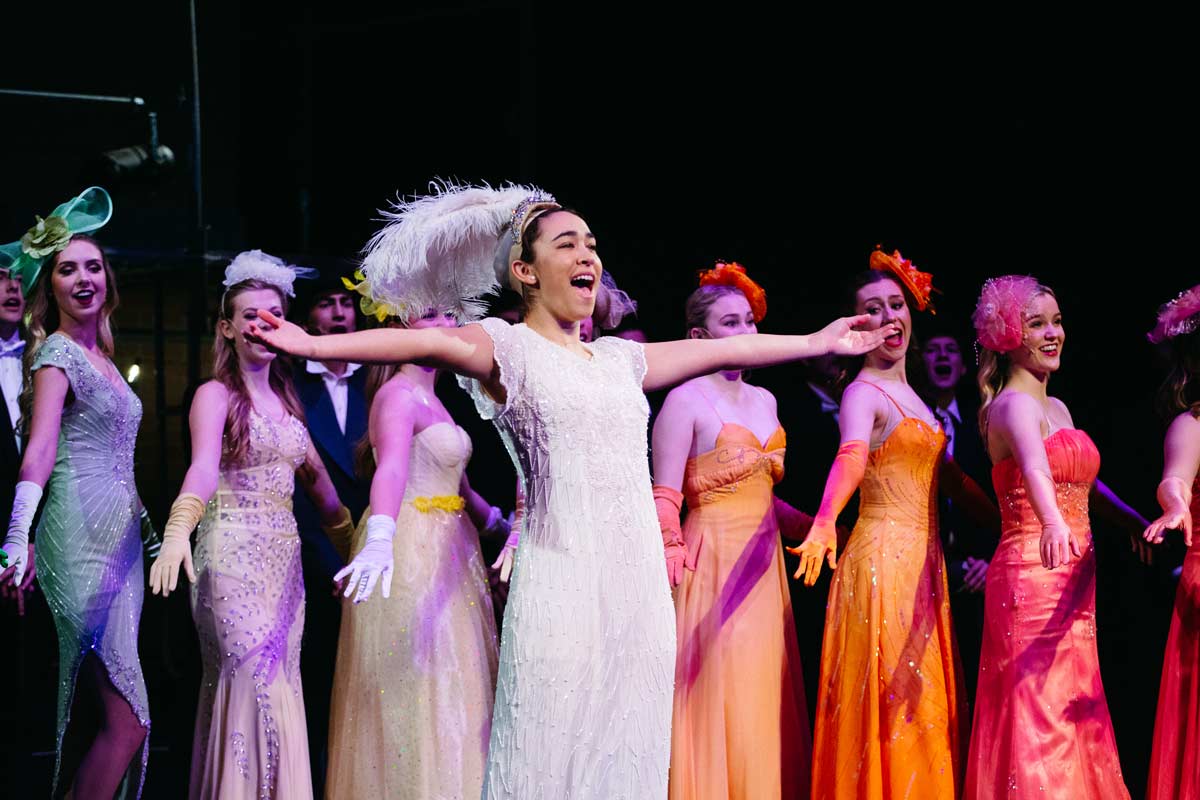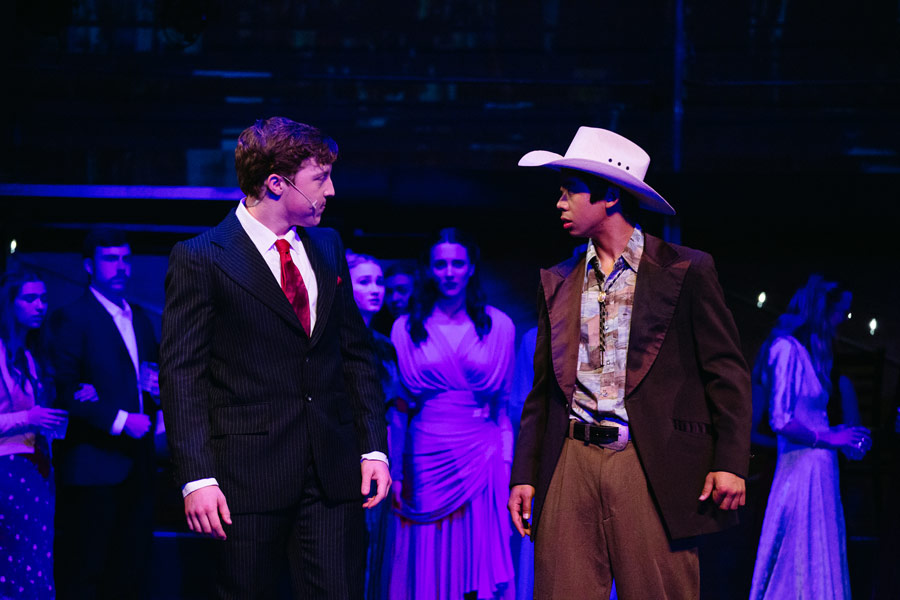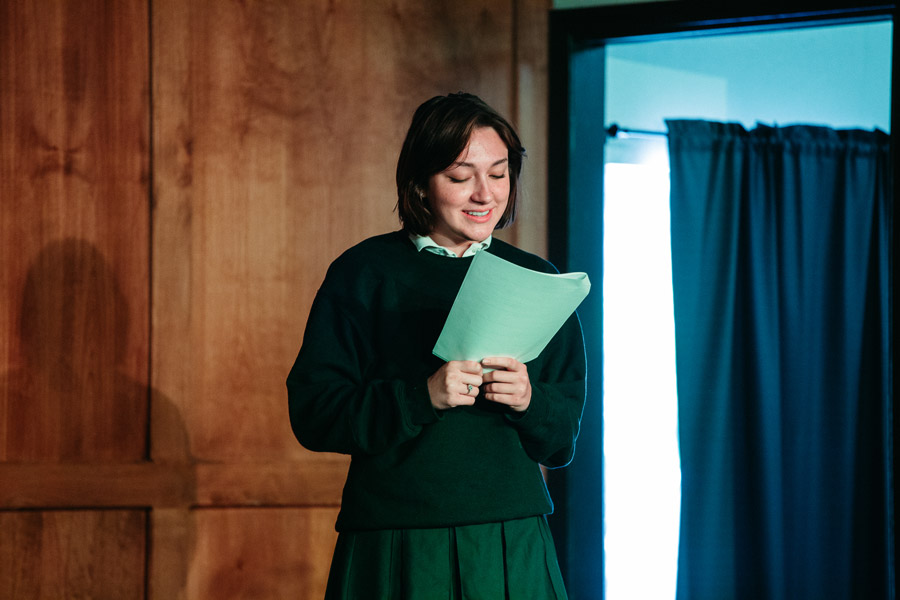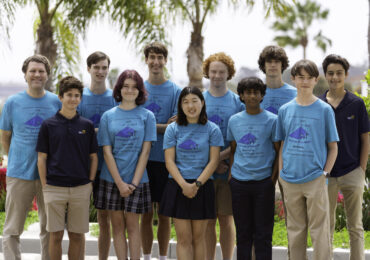Lights, camera, ACTION! At Santa Fe Christian, students in the theatre arts program are used to hearing these words, and they’re better for it.
Theatre has become one of the most memorable parts of many students’ time at SFC, and for good reason. We’re shining a spotlight on this program to show what it’s all about and why it’s made such an indelible mark on those who have participated in it.
Why Theatre Arts are Important in Middle and High School
The theatre arts program at SFC gives students opportunities they won’t find in any other class or extracurricular. Not only do theatre students learn performance techniques, but they also gain new friendships and the freedom to explore new avenues of creative expression.
Creates a Community
The students who participate in theatre arts at SFC are more than just classmates – they’re like family to each other.
“For these four years, they share different memories and milestones,” says Matt Corsaro, High School drama teacher. He says he’s even more proud of the support the theatre students show one another than he is of the shows they put on.
“One of the most important things I’ve learned from being in shows is how important it is to find your community and cherish the people around you,” says student Esther Freeman. “While being apart of 42nd Street, I was able to grow really close to my castmates and build connections and make memories that will stick with me forever.”
Gives Students a Safe Environment to Explore Interests
Middle and High School students are at an age of self-discovery. They’re exploring their interests, gifts, and talents, and the theatre arts program provides a safe environment for them to do so.
“I think anyone should get into theater,” says SFC alumni Trenton Leslie. “Working in an [welcoming] environment where there is a real air of professionalism is invigorating and motivating. There are so many opportunities to express your own creativity. It’s extremely gratifying [that’s] hard to describe.”
Student Ruby Kloer says the theatre program has given her the freedom to make some of her greatest memories. “Truly, how many times are you given the license to dance and sing and play pretend and dress up in an environment where it is seen as something respectable and appreciated?” she says. “I have experienced some of my truest moments of happiness in SFC theatre and am extremely grateful for the community it provided, specifically one that reached across all social circles and made everyone feel equal, valued, and welcomed.”
What do Students Learn From Participating in Theatre Arts?
The theatre arts program is unique in that it provides a wide range of opportunities for growth and learning. Students in the program develop valuable skills, regardless of whether or not they’ll go on to act in the future.
Ownership of Work and Success
According to Mike Siciliano, High School Dean of Students, kids going through the theatre program “learn to be self-starters, to take appropriate risks, and to be creative in ways that can create value.”
From audition to the final curtain, students learn to take ownership of the work that goes into building a character and delivering a performance on stage.
Teamwork and Empathy
Theatre requires that participants work together cooperatively for the production to succeed; there is no room for “we” versus “they” behavior.
“During a show, things happen,” explains Emme Roberts. “Sometimes props don’t make it on, people forget lines, or quick changes don’t go right. But I’ve learned that as a castmate, you always need to be ready to step up, fix it, and make something happen by having each other’s back to keep the show running smoothly.”
Another theatre student, Ginger Marx, says she’s “learned how to handle situations quickly and professionally while staying calm and collected.”
Learning teamwork at this practical level equips students for the challenge of working on teams in college, in their professional careers, and beyond.
Self-Discovery and Confidence
It takes guts to audition, let alone get up in front of an audience and act.
The process of auditioning and performing builds resilience and confidence in students. As Ella Stichler explains, “Acting has allowed me to learn how to overcome rejection and be confident in who I am as a person.”
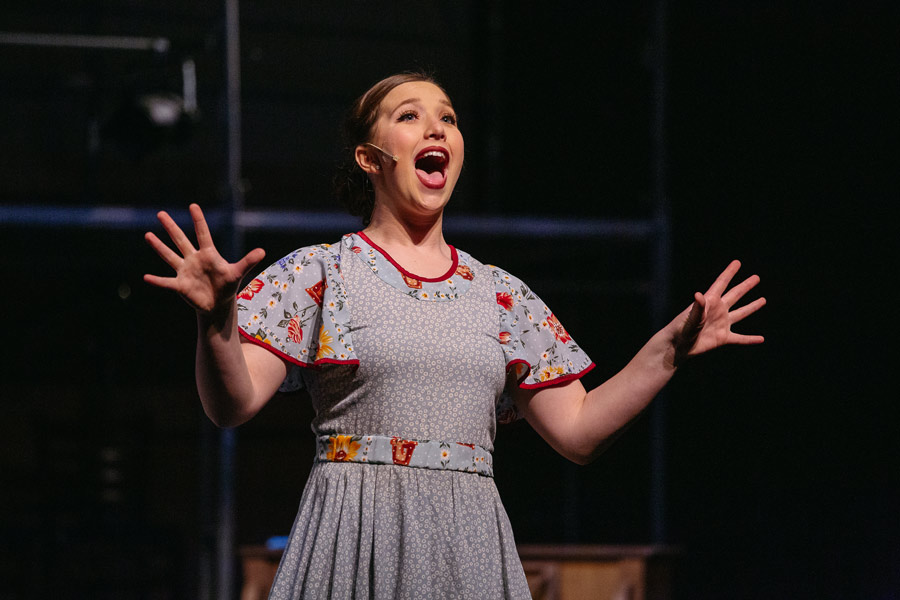
Even though not all theatre students will act after high school, they’ll all experience high-pressure situations like job interviews. Corsaro believes the theatre program prepares students to command these types of situations with confidence.
Public Speaking and Innovation
Another valuable skill that students in the theatre program learn is the ability to speak publicly. And, seeing as a fear of public speaking tops most people’s list of fears, the value of this skill can’t be overstated.
Trenton Leslie remarks how the theatre program has helped him grow in this area: “Being a part of the theater program taught me how to be a more engaging speaker and a more confident conversationalist. Engaging an audience is a skill I developed through theater and is so relevant in everyday life.”
The program also prepares students to be creative on the fly. Especially during live performances, there’s always a chance that something could go wrong. Corsaro teaches students to anticipate hiccups and to adapt when all does not go according to plan.
”Whether receiving new direction as the show develops, or reacting to a mistake in the middle of a live performance, theatre has taught me the importance of going with the flow, since you can never truly predict what comes next in life,” says Claire Bassett.
Self-Expression
One of the most compelling reasons students participate in the theatre program is that it gives them an outlet for self-expression. The performing arts give students an environment in which they can step away from formulas and be creative.
This is one reason Esther Freeman says she’d “recommend theatre to each and every student. Theatre is the best platform to express yourself and have fun while doing it.”
According to Corsaro, students are sometimes dissuaded from joining the theatre program because they don’t sing or have never acted. He emphasizes that it’s his job to help students become better at the skills involved in performing and to put them in places where they’ll shine. So, lack of experience isn’t an obstacle!
Theatre Techniques
Alongside these skills, SFC’s theatre program also equips students with critical theatre techniques. These include stage blocking, vocal projection, script reading, scene critiquing, and improv, to name a few.
The program introduces students to theatrical fundamentals and provides them with interactive, technique-based experiences, like speaking in front of an audience and working as part of a cast. These opportunities serve as a strong foundation for any student who plans to pursue acting after graduating from SFC.
“Because I plan to study technical theatre in college, what I have learned in SFC drama has been invaluable to me,” says Kyra Buley. “Not only that, but this supportive community has fostered my love of the arts like no other program that I’ve been a part of.”
SFC’s Theatre Arts Program
Students can get involved with the theatre arts program at SFC in several ways.
The first theatre class available to students is Drama I. This class includes instruction on the history of the theatre, basic theater terminology, stage blocking, vocal projection, character study, and understanding scripts. Students explore basic acting skills through readings, pantomime, improvisation, film study, and short sketches.
After taking Drama I, students may move on to Drama II. In this class, students gain a deeper understanding of the art and approach of acting, directing, producing, and technical directing. This course is intended for students who wish to gain a deeper understanding of acting, directing, technical design, and storytelling.
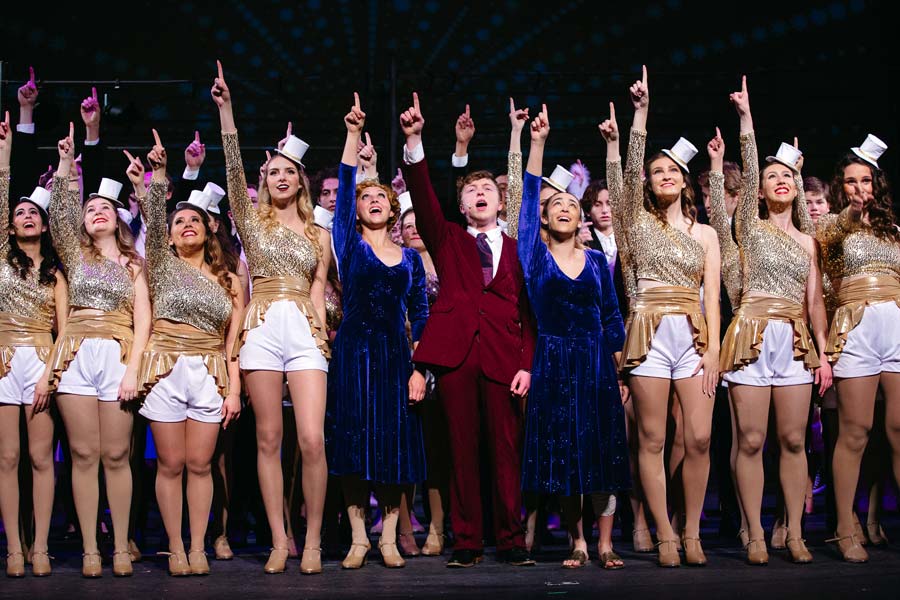
SFC’s theatre arts program also offers an Acting Improv class and an Intro to Theatre class.
Outside the classroom, SFC’s Improv Club is a three-time defending champion at the NCT High School Improv Tournament in San Diego. The club puts on three to four productions each year, ranging from plays to musicals.
The theatre arts program has been the highlight of many students’ time at SFC, and it will continue playing that role in the lives of many more to come. As Kennard puts it, “Putting on a show is one of the most rewarding feelings, and theatre lets you share this opportunity with those around you. I am beyond thankful I was part of the theatre program at SFC, and I can’t imagine my life without it.”
